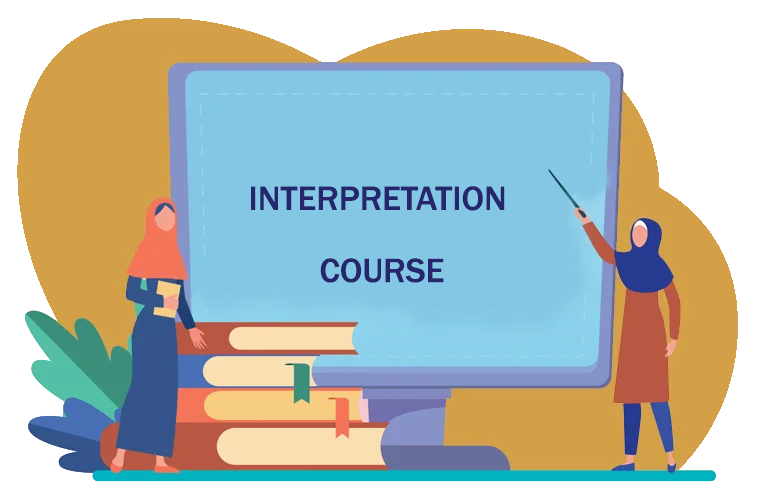Interpretation course
Interpretation course
Hermeneutics is a deep study of understanding the meanings of religious texts, especially the Holy Quran in Islam. Interpretation is an important field for understanding the cultural, historical and linguistic context of religious texts. A hermeneutics course can include many elements
Hermeneutics is a deep study of understanding the meanings of religious texts, especially the Holy Quran in Islam. Interpretation is an important field for understanding the cultural, historical and linguistic context of religious texts. A hermeneutics course can include many elements, including:
1. Historical readings: Tracing the development of understanding interpretation across the ages, starting from historical interpretation and symbolic interpretation to modern interpretation.
2. Methods and approaches: Studying the different methods that can be used in the interpretation process, such as linguistic interpretation, rhetorical interpretation, jurisprudential interpretation, doctrinal interpretation, and others.
3. Historical and cultural context: Understanding the context in which the Qur’anic verses were revealed, and how this can affect their interpretation.
4. Jurisprudential deduction: studying how to extract jurisprudential rulings from Qur’anic texts.
5. Practical application: applying interpretation skills to specific texts, and analyzing various Qur’anic topics.
6. Criticism and evaluation: Evaluating different interpretations and analyzing their strengths and weaknesses.
The hermeneutics course can be intended for beginners who wish to understand the basics of Quranic interpretation, as well as for advanced students who seek to develop their skills in this field.
- Adjectives
- Plural
- Prepositions
- Feminine
- Numbers
- Negation
- Pronouns
- Questions
- Determiners
- Nouns
- Verbs
- Present Tense
- Past Tense
- Future Tense
- Imperative
- Comparative
- Adverbs


